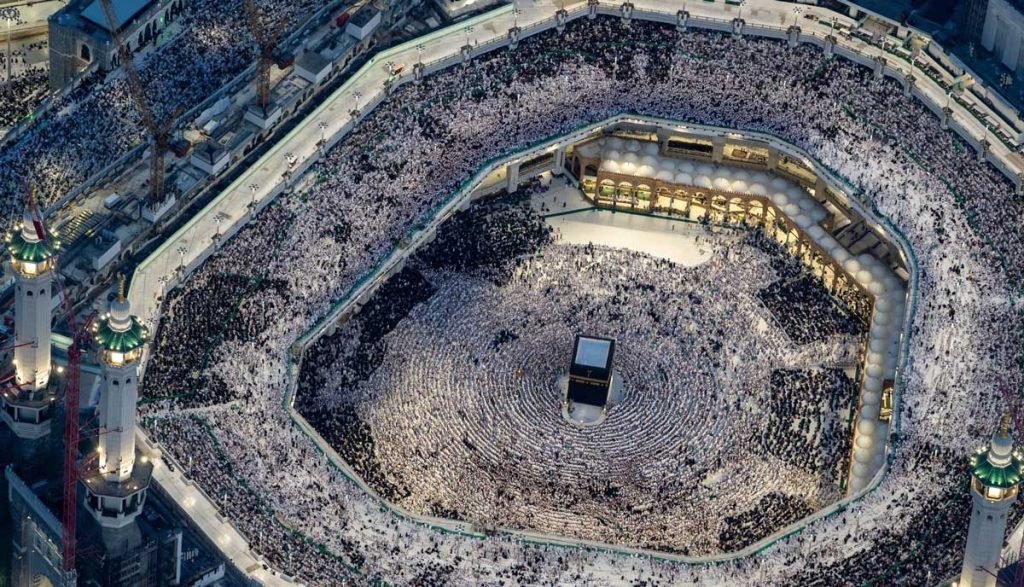📜 The Origin: A Test of Obedience and Love
The story begins with Prophet Ibrahim (peace be upon him), a messenger who was tested by Allah in a way that would leave a lasting legacy for all believers.
“Then when [his son] reached the age of effort, he [Ibrahim] said: ‘O my son! Indeed I have seen in a dream that I must sacrifice you, so see what you think.’ He said: ‘O my father! Do as you are commanded. If Allah wills, you will find me among the steadfast.’”
— Surah As-Saffat (37:102)
Dreams of the Prophets are considered revelation. So, Ibrahim (peace be upon him) knew it was a command from Allah. As he prepared to fulfill it, with his son Ismail (peace be upon him) ready and willing, Allah intervened:
“And We ransomed him with a great sacrifice.”
— Surah As-Saffat (37:107)
This act is the foundation of Eid al-Adha — a celebration of devotion, submission, and the mercy of Allah.
🏞 The Trial of Hajar and the Miracle of Zamzam
Years before this test, Prophet Ibrahim (peace be upon him), following Allah’s command, had left his wife Hajar and their infant son Ismail in the barren valley of Bakkah (present-day Makkah). With no water or vegetation, Hajar ran between the hills of Ṣafā and Marwah seven times in search of water — an act now performed by all pilgrims during Hajj.
According to authentic Islamic narrations (Sahih al-Bukhari), when baby Ismail cried, he struck the ground with his heel, and Allah caused water to gush forth — the blessed Zamzam well.
“This is the well of Zamzam, whose water came out at the feet of Ismail.”
— Sahih al-Bukhari, Hadith 3364
This miraculous water continues to flow to this day and is considered blessed by all Muslims.
🕋 Rebuilding the Kaaba
As Ismail grew older, Allah commanded Ibrahim and his son to raise the foundations of the Kaaba.
“And [mention] when Ibrahim was raising the foundations of the House and [with him] Ismail [saying], ‘Our Lord, accept [this] from us. Indeed, You are the Hearing, the Knowing.’”
— Surah Al-Baqarah (2:127)
The Kaaba would become the heart of Islamic worship, the direction (Qiblah) Muslims face in every prayer, and the destination of the sacred Hajj pilgrimage.
🌙 The Eid in the Time of Prophet Muhammad ﷺ
During the Madinan period, the Prophet Muhammad ﷺ clearly established the rituals of Eid al-Adha. He emphasized the importance of the congregational prayer and the act of sacrifice:
“The first thing we do on this day is pray, then we return and perform the sacrifice. Whoever does that has followed our Sunnah.”
— Sahih al-Bukhari, Hadith 956
The Prophet ﷺ also made it clear that the sacrifice is an act of worship and devotion:
“It is the Sunnah of your father Ibrahim.”
— Ibn Majah, Hadith 3122
He encouraged all capable Muslims to perform the sacrifice, and to distribute the meat among family, neighbors, and the poor — a reminder of gratitude and charity.
💭 A Timeless Message
Eid al-Adha is not only a day of celebration — it is a moment of reflection. The legacy of Ibrahim, Hajar, and Ismail (peace be upon them) teaches us about obedience, patience, sacrifice, and unwavering trust in Allah. Their stories are not ancient tales, but living examples that continue to inspire the hearts of millions today.
Whether you are preparing for Hajj or celebrating from home, may this Eid renew your spirit of devotion and unity. And may the remembrance of this noble history deepen our faith and strengthen our connection with Allah ﷻ.
Discover our Eid Collection at Mariam's Collection, where we offer elegant abayas and thoughtful gifts to help you embrace this sacred month with beauty and grace. Don’t forget to use our exclusive discount code MC24SMNBLOG for saving more!


